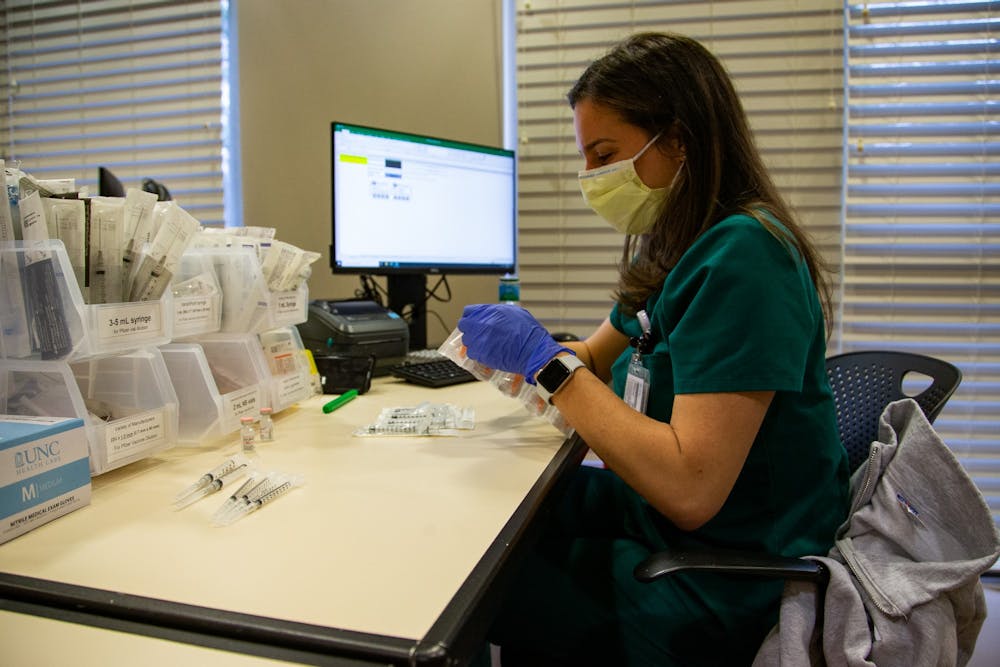All adults in North Carolina will be able to be vaccinated soon following a new vaccine eligibility timeline announced by Gov. Roy Cooper on March 25.
The new timeline allows the second part of Group 4, other essential workers and people in group living settings to become eligible for the vaccine March 31, one week earlier than anticipated.
The Group 4 essential workers included are those identified in Group 3 who did not qualify for the frontline criteria and other critical sectors. Additionally, Group 4 includes individuals living in dormitories, Greek housing, off-campus communal apartments, homeless shelters and correctional facilities, and those who are experiencing homelessness.
Group 5, which includes all other adults in North Carolina, will become eligible April 7.
Dr. Charlene Wong, the chief health policy officer for COVID-19 at the N.C. Department of Health and Human Services, said the federal government informs the NCDHHS how many vaccines will be provided to the state each week. She said the NCDHHS then works to allocate that vaccine out to local vaccine providers across the state.
Todd McGee, Orange County community relations director, said the county has seen progress in vaccinating individuals, but there is still a large demand for vaccines — despite the federal government's supply of vaccines increasing.
"The supply and demand is still a big issue," McGee said.
Wong said the NCDHHS is evolving its vaccine allocation methodology to address this problem.
"Our goal in North Carolina is to vaccinate as many people as quickly and as fairly as possible," Wong said.



